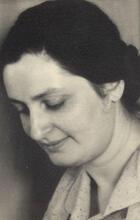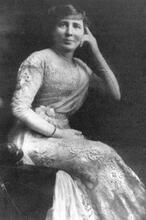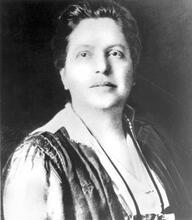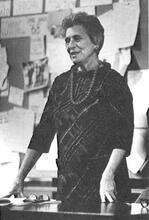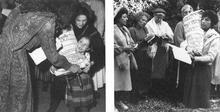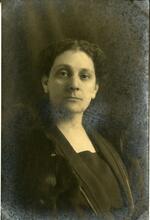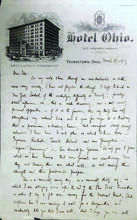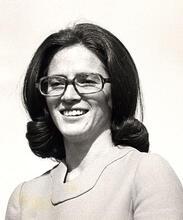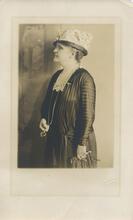Alice Springer Fleisher Liveright
Devoting her life to the underprivileged, activist Alice Springer Fleisher Liveright helped professionalize social work. She served as the president of the Juvenile Aid Society and of the Philadelphia Conference of Social Work. Through the NAACP, Liveright worked to extend social services to African Americans and, as state secretary of welfare, she helped reorganize relief work from private charities to governmental organizations. Liveright also served on the advisory staff for the Works Progress Administration. Always politically active, Liveright was at different times a member of various political parties, including the Republican Party, the Socialist Party, and the Pennsylvania Progressive Party.
A woman from an affluent background who devoted her life to the underprivileged, Alice Springer Fleisher Liveright was part of a new generation of female professionals who helped to transform reform work from a pastime for middle-class women into a livelihood. This sense of professionalism, combined with left-leaning ideals of social justice and an outspoken manner, led her to work for equal rights for women and African Americans, and social welfare for children and poor adults.
Family Life
Alice Springer Fleisher Liveright was born on December 18, 1882, in Philadelphia, Pennsylvania. Her parents, Martha (Springer) and Alexander Fleisher, were from prominent German Jewish families in Philadelphia. Her younger brother, Mayer, became a university professor in St. Louis. After her father died in 1888, Alice took on much of the responsibility for running the household. She attended a finishing school and in 1902 enrolled at the Drexel Institute of the University of Pennsylvania. On March 1, 1906, she married I. Albert Liveright, a manufacturer from another important Philadelphia German Jewish family. They had one child, Alexander “Sandy” Albert, and belonged to Reform congregation Keneseth Israel.
Professionalizing Charity and Reform Work
After studying at the Pennsylvania School of Social Work from 1912 to 1918, Liveright was involved with a variety of charity and reform groups, first in the Jewish community and then beyond. She served on the board of directors of the Juvenile Aid Society, a Jewish organization for troubled youth, starting in 1916, and later served as president. In 1931, she resigned and was appointed honorary director. She sat on the board of the Federation of Jewish Charities in 1926, and in 1928 aided community welfare organizations.
Devoted to social work as a profession, Liveright presided over the Philadelphia Conference of Social Work, helped found the Community Council, and served on the boards of the Pennsylvania School of Social Work and the Social Work Publicity Council. An advocate for women’s issues, she was very involved with the Women’s International League for Peace and Freedom, and served as the Philadelphia chair of the Bryn Mawr Summer School for Industrial Workers, which educated and trained working-class women. In addition, she was involved with the National Association for the Advancement of Colored People and sought to expand social services and social work opportunities to African Americans.
The peak of Liveright’s professional career was as Pennsylvania’s state secretary of welfare under liberal Republican governor Gifford Pinchot from 1931 to 1935. During this time, Pennsylvania had the third highest unemployment rate in the United States and the highest demand for welfare or other forms of state relief. Liveright contributed to the organization and regulation of state welfare delivery systems by shifting relief responsibilities from local private charities to the state and federal governments. She went on to serve on the advisory staff of the Works Progress Administration (WPA) in Washington, D.C., from 1935 to 1936.
Political Involvement
Liveright was very active in politics. She was initially a member of the Republican Party, the dominant party in Philadelphia, but she became a socialist in the 1920s. She returned to the Republican Party to serve under Pinchot because of his liberal stance on social issues but shifted to the Democratic Party when working for the WPA. She then chaired the Philadelphia Progressive Party and supported Henry Wallace in his 1948 presidential campaign.
Throughout her career, Liveright demonstrated what is considered a modern understanding of poverty and social welfare. This approach tried to look scientifically at the roots of poverty and antisocial behavior, and it focused on a person’s environment rather than just the morality of a person’s actions. Liveright knew the cost of preventative welfare programs, but maintained that the cost of eliminating such programs was even greater. She also recognized and used the power of the media to get support for her initiatives. Practical in her approach, Alice Springer Fleisher Liveright was nonetheless passionate in her quest for social justice. She died in Philadelphia on February 18, 1958.
Coode, Thomas H., and John F. Bauman. People, Poverty, and Politics: Pennsylvanians During the Great Depression (1981).
Juvenile Aid Society. Annual reports and minutes. Association of Jewish Children Records, series 4, boxes 1–6, Philadelphia Jewish Archives Center.
Kiebert, Emma Liveright. Interview by author, July 1996.
Liveright, Alice Fleisher. “The Citizen and Public Welfare.” Social Science Review 8 (September 1934): 415–422.
“Mrs. Liveright, 75, A Welfare Aide.” NYTimes, February 19, 1958, 27:4.
State Welfare Commission. Report on State Aid to Private Charitable Institutions and Agencies (1935)
WWIAJ (1938).

